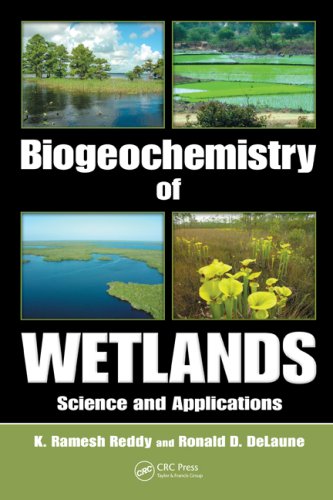

Most ebook files are in PDF format, so you can easily read them using various software such as Foxit Reader or directly on the Google Chrome browser.
Some ebook files are released by publishers in other formats such as .awz, .mobi, .epub, .fb2, etc. You may need to install specific software to read these formats on mobile/PC, such as Calibre.
Please read the tutorial at this link: https://ebookbell.com/faq
We offer FREE conversion to the popular formats you request; however, this may take some time. Therefore, right after payment, please email us, and we will try to provide the service as quickly as possible.
For some exceptional file formats or broken links (if any), please refrain from opening any disputes. Instead, email us first, and we will try to assist within a maximum of 6 hours.
EbookBell Team

4.7
106 reviewsIntegrates concepts from soil and plant sciences, chemistry, biology, ecology, and environmental engineering
This book offers an in-depth look at the chemical and biological cycling of nutrients, trace elements, and toxic organic compounds in wetland soil and water column as related to water quality, carbon sequestration, and greenhouse gases. It details the electrochemistry, biochemical processes, and transformation mechanisms for the elemental cycling of carbon, oxygen, nitrogen, phosphorus, and sulfur. Additional chapters examine the fate and chemistry of heavy metals and toxic organic compounds in wetland environments. The authors emphasize the role of redox-pH conditions, organic matter, microbial-mediated processes that drive transformation in wetlands, plant responses and adaptation to wetland soil conditions. They also analyze how excess water, sediment water, and atmospheric change relate to elemental biogeochemical cycling.
Provides an ideal teaching text or professional reference for those involved in ecological restoration, water quality, ecological engineering, and global climate change
Delivering an in-depth scientific examinination of the natural processes that occur in wetland ecosystems, Biogeochemistry of Wetlands comprises a key perspective on the environmental impact of pollutants and the role freshwater and coastal wetlands play in global climate change.